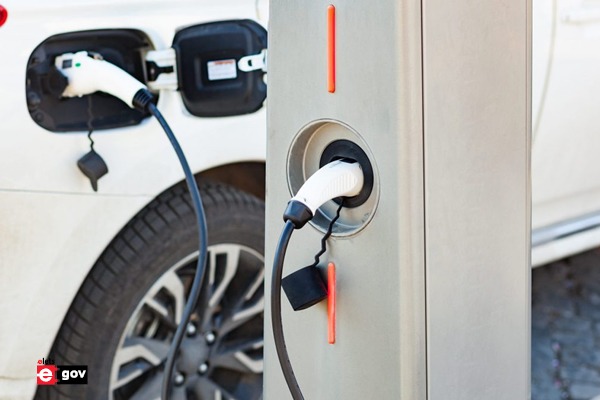
The Haryana Government has passed the Haryana Electric Vehicle (EV) Policy, 2022, designating 2022 as Haryana’s ‘Year of Electric Vehicles.’
The policy was approved in a cabinet meeting led by CM Manohar Lal as a step to increase EV adoption in the state.
“The EV Policy aims to protect the environment, reduce carbon footprint, make Haryana an EV manufacturing hub, ensure skill development in EV field, encourage uptake of EV vehicles, provide EV charging infrastructure and encourage R&D in EV technology”, the Haryana government said in a press statement.

Manufacturers of electric vehicles, EV components, EV batteries, charging infrastructure, and other products will be provided numerous financial incentives under the EV Policy.
Early bird direct benefits of up to INR 10 Lakhs will be provided on the purchase of EVs or Hybrid EVs in Haryana, in addition to registration fee relaxation and a discount on Motor Vehicle Tax.
Furthermore, consumers of EVs will be incentivised, lowering the effective upfront expenses, as EVs have a higher initial cost than ICE vehicles.

The policy offers several benefits – Fixed Capital Incentives (FCI), net SGST, stamp duty, employment opportunities, and other factors will be used to incentivise EV manufacturing.
Also, EV manufacturers will receive a full refund of stamp duty as well as an exemption from electricity duty for a period of 20 years. For a period of ten years, EV manufacturers will be entitled for a refund of 50% of their net SGST. Along with that, the capital subsidy will be incentivised for the EV and EV component manufacturers. Every year for ten years, an employment generating subsidy of INR 48,000 per employee shall be provided.
Gurugram and Faridabad will be designated as Electric Mobility (EM) model cities. Adoption will take place in this phase to achieve the 100% e-mobility target.
The Haryana EV policy fosters EV R&D by providing incentives to educational or research institutions that establish R&D centres. The policy pledges to fund 50% of project costs up to INR 1 Cr for creating new electric charging technology and 50% of project costs up to INR 5 Cr for developing new electric car technology.
A grant of INR 5 Cr would be made available for R&D in non-fossil fuel-based solutions. There will also be an INR 25 Lakh grant for the first 20 colleges or polytechnics/industrial training institutes to set up infrastructure relevant to EV R&D.
Also Read | EV prices to come down as government cuts GST on battery packs
Even government organisations, private enterprises, public sector organisations, and other groups will be encouraged to conduct EV R&D with a 50% grant of the project costs up to INR 5 Cr.
“We welcome this groundbreaking move by the Haryana Government to declare 2022 as the Year of EVs. What’s encouraging is that there is a comprehensive EV policy backing this move. Slashing emissions from the road transport sector forms a pivotal part of India’s efforts to de-carbonise its economy and a well-articulated, incentivise EV policy is crucial to creating a conducive environment for the adoption of EVs,” Suman Mishra, CEO, MEML, said.
Consumer sentiment is what propels any state into the EV transition. And, in order to generate positive consumer opinion, any EV strategy must address consumer scepticism about EVs. To solve the issue, Haryana EV regulations target high EV vehicle pricing and provide incentives in the form of lower upfront purchasing costs.
Be a part of Elets Collaborative Initiatives. Join Us for Upcoming Events and explore business opportunities. Like us on Facebook , connect with us on LinkedIn and follow us on Twitter, Instagram.











